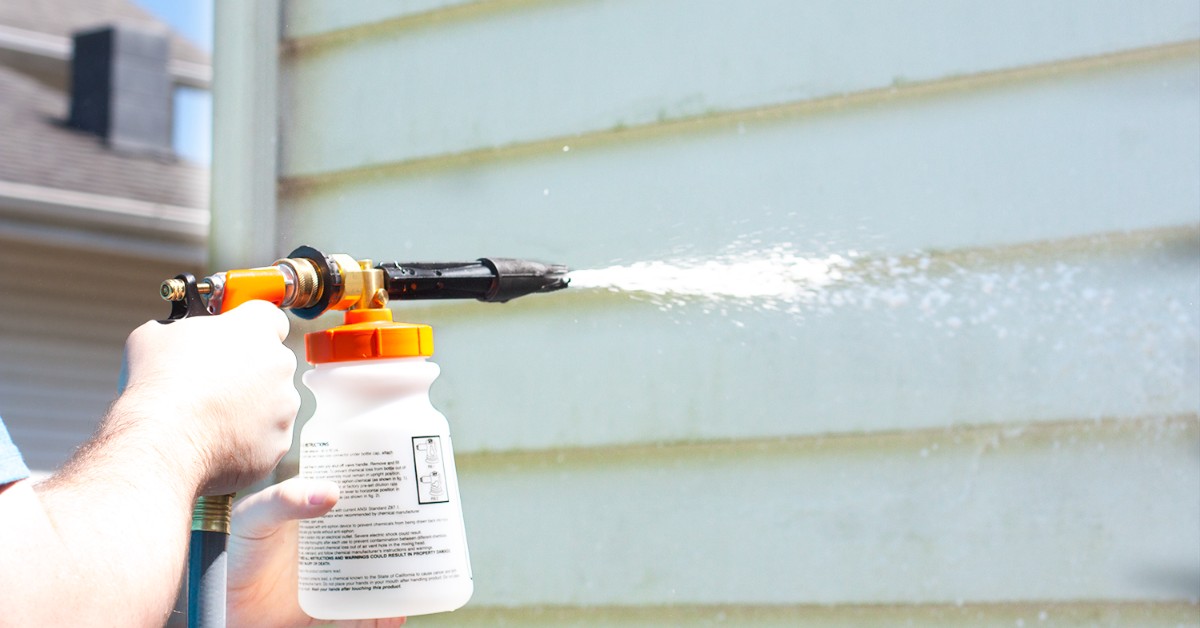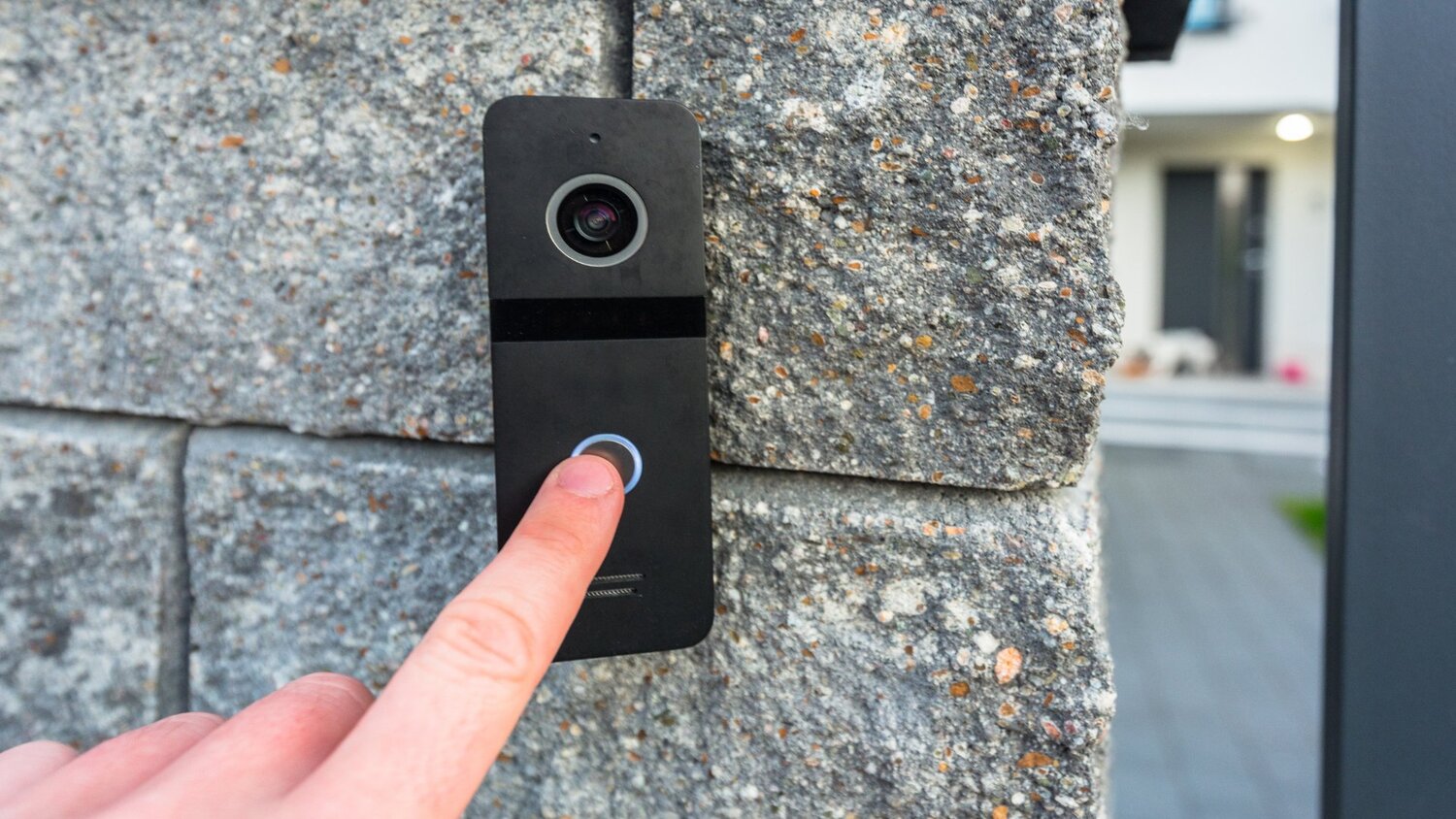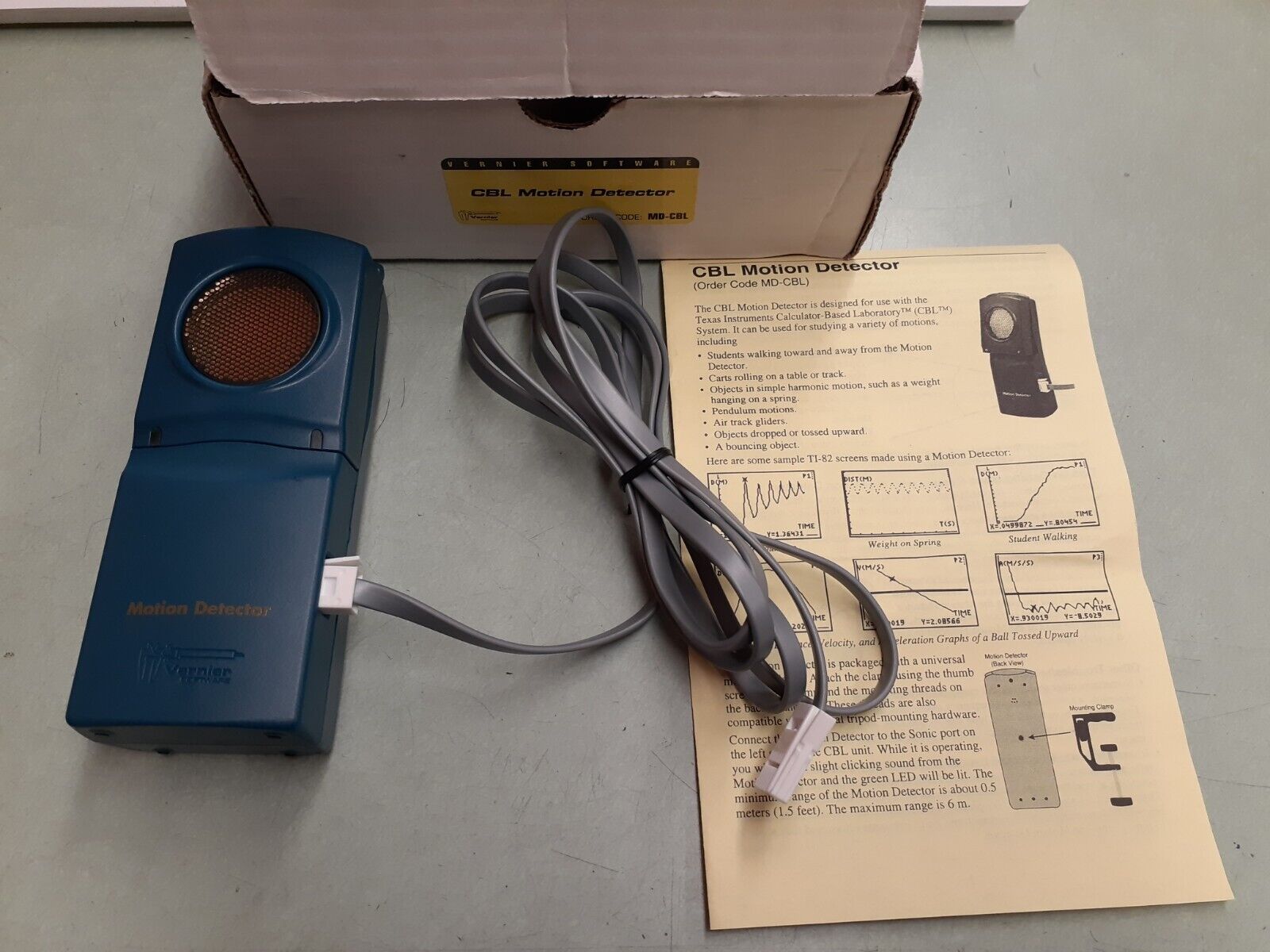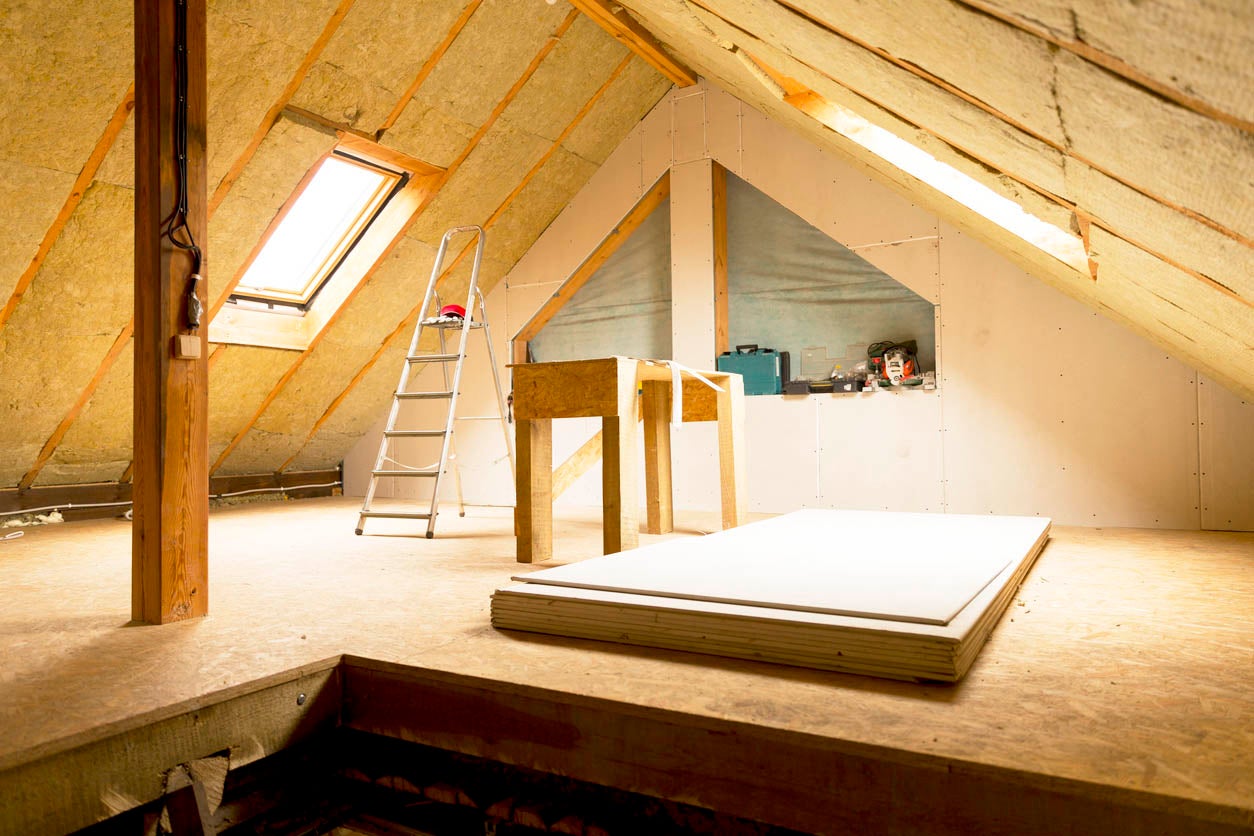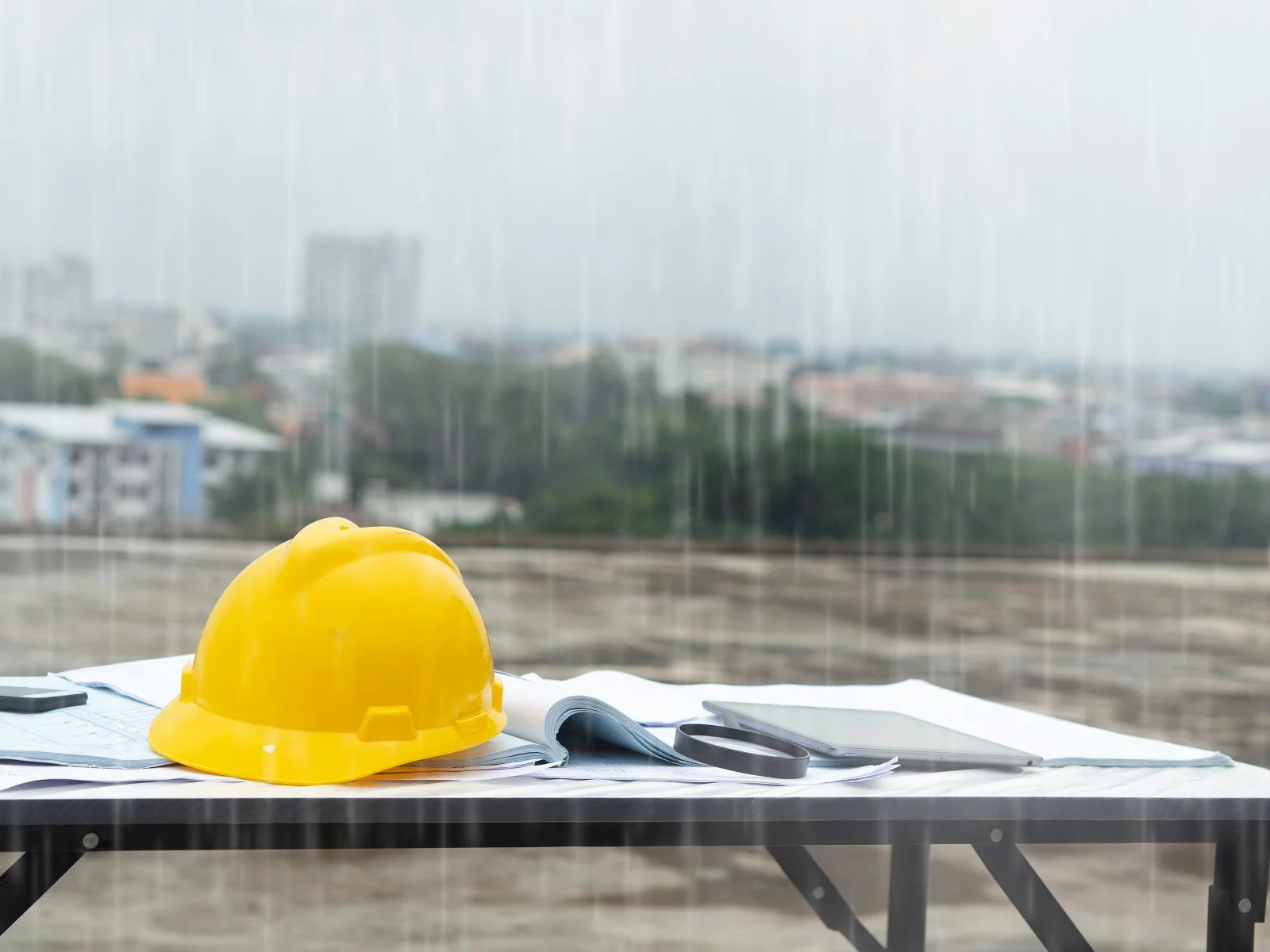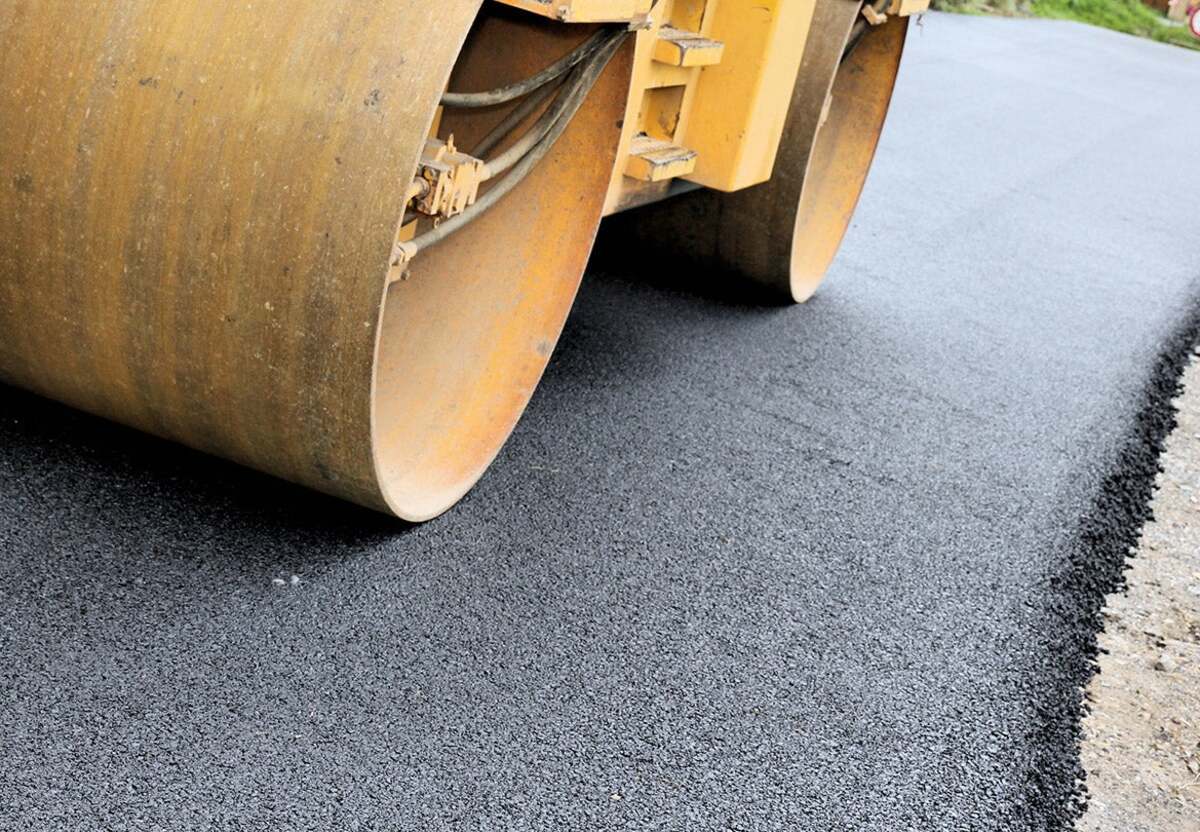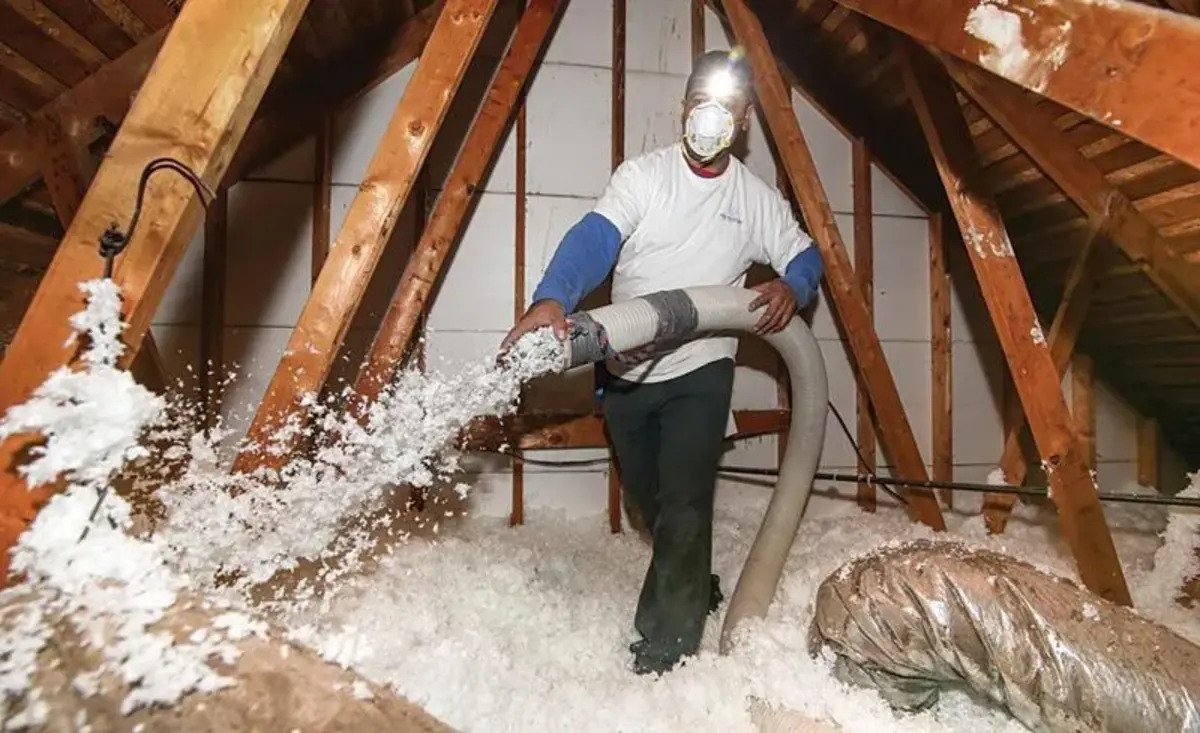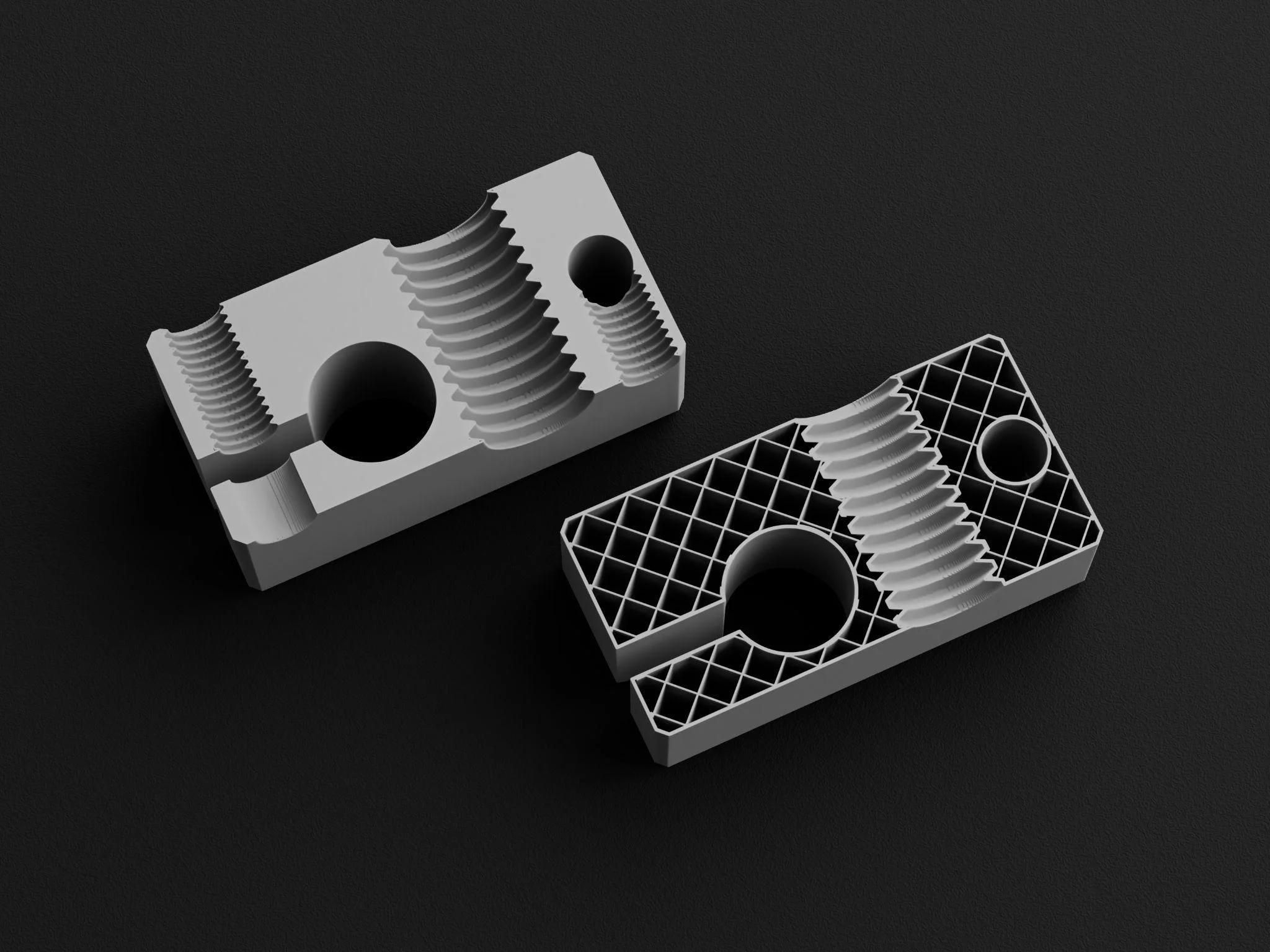Home>Home Maintenance>How Does Home Maintenance Affect The Cost Of Utilities?
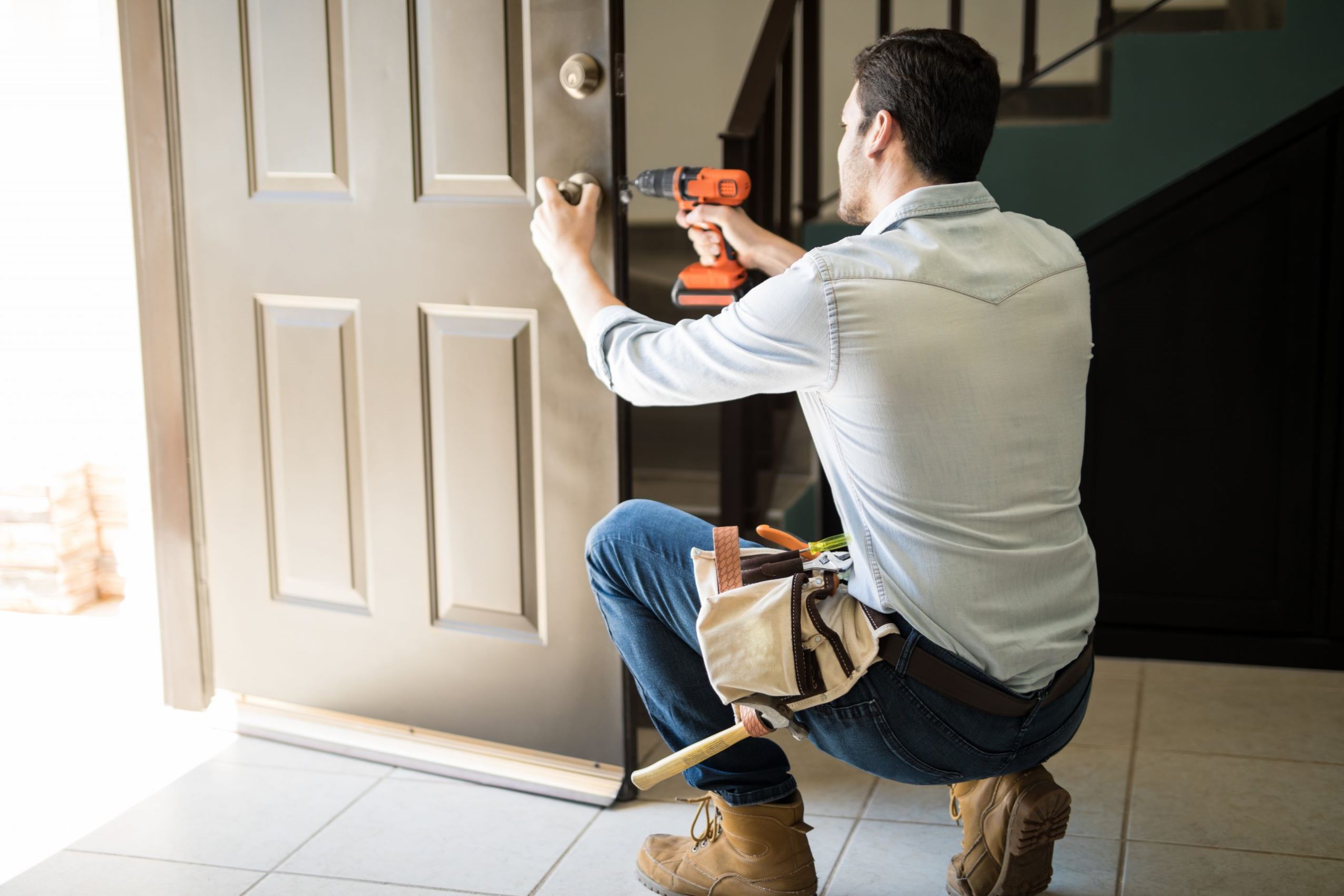

Home Maintenance
How Does Home Maintenance Affect The Cost Of Utilities?
Modified: October 20, 2024
Discover how home maintenance impacts utility costs and learn valuable tips to optimize your home's efficiency. Explore the connection between home maintenance and saving money on utilities.
(Many of the links in this article redirect to a specific reviewed product. Your purchase of these products through affiliate links helps to generate commission for Storables.com, at no extra cost. Learn more)
Introduction
Welcome to our comprehensive guide on how home maintenance impacts the cost of utilities! Keeping up with routine maintenance not only ensures the longevity and efficiency of your home but also has a significant effect on your utility expenses. By implementing proactive measures and making necessary repairs, you can save money, reduce energy consumption, and contribute to a more sustainable environment.
So, what exactly do we mean by utilities? Simply put, utilities refer to essential services that keep your home functioning properly. These include electricity, gas, water, and other resources that are necessary for daily living. The cost of utilities can quickly add up, especially when inefficiencies and neglect are involved.
In this article, we will explore the various types of utilities, discuss the impact of home maintenance on their costs, and provide practical tips to help you optimize efficiency and reduce expenses. It’s time to take control of your utility bills and create a more sustainable home environment!
Key Takeaways:
- Regular home maintenance can lower utility bills by improving energy efficiency, preventing costly repairs, and extending the lifespan of appliances and systems. It also contributes to a more sustainable living environment.
- Simple steps like sealing air leaks, upgrading to energy-efficient appliances, and practicing water conservation can significantly reduce utility costs and create a more efficient and eco-friendly home.
Importance of Home Maintenance
Home maintenance is a crucial aspect of homeownership that should never be overlooked. Regular upkeep and repairs not only enhance the aesthetic appeal of your home but also play a vital role in ensuring its structural integrity and functionality. Beyond these obvious benefits, home maintenance has a direct impact on the cost of utilities. Here’s why it’s so important:
1. Energy Efficiency: A well-maintained home is more energy-efficient, which translates to lower utility bills. By sealing air leaks, insulating your home, and properly maintaining your HVAC system, you can prevent energy wastage and reduce your overall energy consumption.
2. Prevents Costly Repairs: Neglecting home maintenance can lead to costly repairs down the line. For example, a small leak in the plumbing system can quickly worsen, resulting in water damage and increased water bills. By addressing maintenance issues promptly, you can avoid expensive repairs and keep utility costs in check.
3. Extends Equipment Lifespan: Regular maintenance of appliances and systems such as HVAC units, water heaters, and electrical systems can extend their lifespan. This means you won’t have to shell out money for premature replacements, thereby saving on both utility costs and equipment expenses.
4. Enhances Home Value: Well-maintained homes have a higher resale value. Potential buyers are more likely to be attracted to a property that has been well-cared for, including having a well-maintained and efficient utility system. This can give you a competitive edge in the real estate market and potentially fetch a higher price for your home.
5. Promotes Sustainability: By practicing regular home maintenance, you contribute to a more sustainable environment. Energy-efficient upgrades such as installing low-flow fixtures, LED lighting, and programmable thermostats reduce your carbon footprint and conserve valuable resources.
As you can see, home maintenance goes far beyond just improving the appearance of your home. It directly impacts the cost of utilities and has wide-ranging benefits for both your wallet and the environment. Now, let’s delve into the different types of utilities and how home maintenance affects their costs.
Definition of Utilities
Before we explore how home maintenance impacts the cost of utilities, let’s define what utilities are. Utilities refer to the essential services and resources that are necessary for running a home smoothly and comfortably. They include electricity, gas, water, sewage, and even internet and cable services. These utilities are supplied to our homes through infrastructure systems managed by utility companies.
Here’s a breakdown of the different types of utilities:
- Electricity: Electricity is the most widely used utility and powers our homes, providing energy for various appliances and lighting.
- Gas: Gas utilities include natural gas or propane, which is used for heating, cooking, and fueling appliances such as gas stoves and water heaters.
- Water: The water utility supplies potable water for our daily needs, including drinking, cooking, bathing, and washing.
- Sewage: Sewage utilities handle the disposal of wastewater from our homes through a network of pipes and treatment facilities.
- Internet and Cable: While not essential for basic living, internet and cable services have become increasingly important for communication, entertainment, and work purposes.
These utilities are typically billed on a monthly basis, and the cost can be influenced by factors such as consumption, rates, and efficiency. With proper home maintenance, you can take control of your utility expenses, reduce wastage, and create a more sustainable living environment.
Now that we have a clear understanding of what utilities encompass, let’s dive into how home maintenance practices affect the cost of these utilities.
Types of Utilities
Utilities are essential services that keep our homes running smoothly and comfortably. They encompass various components that are crucial for our daily lives. Let’s explore the different types of utilities:
- Electricity: Electricity is the most fundamental utility in modern homes. It powers our lights, appliances, electronics, and heating/cooling systems. Without electricity, our daily routines would be severely impacted.
- Natural Gas: Natural gas is a common utility used for heating, cooking, and fueling appliances like water heaters and ovens. It is a versatile and cost-effective energy source that many homeowners rely on.
- Water: The water utility provides us with clean and safe water for drinking, cooking, cleaning, and irrigation. It is essential for our well-being and carries out numerous functions in our homes.
- Sewage/Septic: Sewage or septic utilities manage the proper disposal and treatment of wastewater from our homes. They ensure that waste is disposed of safely and prevent environmental contamination.
- Trash/Recycling: Trash and recycling utilities handle the collection and disposal of our waste and recyclable materials. They play an important role in waste management and sustainable practices.
- Internet/Phone: Internet and phone services are now considered essential utilities for many households. They provide us with connectivity for communication, work, education, and entertainment purposes.
These utilities are crucial for our everyday lives, and their costs can add up significantly. However, with proper home maintenance and some energy-conscious habits, it is possible to reduce the expenses associated with these utilities.
In the following sections, we will explore how home maintenance practices can impact the cost of these utilities and provide you with tips on optimizing efficiency and reducing expenses. Let’s dive in!
Impact of Home Maintenance on Utility Costs
Home maintenance plays a significant role in determining the cost of utilities. Neglecting regular upkeep and failing to address maintenance issues can lead to inefficiencies and increased utility expenses. On the other hand, proactive maintenance practices can help optimize efficiency and reduce utility costs. Here are some ways in which home maintenance directly affects utility expenses:
- Energy Efficiency: One of the key factors that influence utility costs is energy consumption. By maintaining a well-insulated home, sealing air leaks, and ensuring proper ventilation, you can reduce energy waste and lower your electricity and gas bills. Additionally, regularly cleaning and servicing your HVAC system can improve its efficiency, leading to significant energy savings.
- Water Conservation: Home maintenance also affects water utility costs. By fixing leaky faucets, toilets, and pipes, you can conserve water and reduce your water bills. Additionally, implementing water-efficient fixtures and appliances, such as low-flow showerheads and dual-flush toilets, can further reduce water consumption and expenses.
- Proper Appliance Maintenance: Appliances such as refrigerators, washing machines, dishwashers, and water heaters contribute to a significant portion of utility costs. Regular maintenance, including cleaning vents and filters, checking for leaks, and ensuring optimal performance, can improve the efficiency of these appliances. This, in turn, can reduce energy and water consumption, leading to lower utility bills.
- Insulation and Weatherproofing: A well-insulated home can help regulate indoor temperatures more effectively, reducing the load on heating and cooling systems. By regularly inspecting insulation, sealant, and weatherstripping, and making necessary repairs or upgrades, you can minimize energy loss and save on utility costs.
- Smart Technology Integration: Advancements in technology have introduced smart home devices that can optimize energy and water usage. By integrating smart thermostats, smart lighting, and smart irrigation systems into your home, you can have better control over your utilities and reduce unnecessary consumption.
By investing time and effort in proactive home maintenance practices, you can significantly impact your utility costs. Not only will you save money, but you will also contribute to a more sustainable environment by reducing your carbon footprint. In the following sections, we will delve deeper into specific maintenance tips for improving energy efficiency and water conservation. Let’s explore how you can optimize your home and reduce utility expenses!
Read more: How Does Alcohol Abuse Affect The Home Life
Energy-Efficient Home Maintenance Tips
Improving energy efficiency in your home not only helps reduce your utility bills but also contributes to a greener and more sustainable environment. Here are some energy-efficient home maintenance tips to help you optimize energy usage and save on your utility costs:
- Seal Air Leaks: Air leaks in your home can lead to significant energy loss. Inspect doors, windows, ducts, and other areas where air could be escaping. Seal any gaps or cracks with weatherstripping or caulking to prevent drafts and keep your conditioned air inside.
- Insulate Properly: Adequate insulation plays a crucial role in maintaining a comfortable indoor temperature and reducing the load on your HVAC system. Insulate your walls, attic, and basement to prevent heat transfer and ensure better energy efficiency.
- Upgrade to Energy-Efficient Lighting: Replace traditional incandescent light bulbs with energy-efficient LED bulbs. LED lighting uses less energy and lasts longer, resulting in reduced electricity consumption and lower utility bills.
- Install a Programmable Thermostat: A programmable thermostat allows you to set temperature schedules based on when you are home or away. This helps optimize energy usage by automatically adjusting the temperature when you don’t need heating or cooling.
- Service Your HVAC System Regularly: Schedule annual maintenance for your heating and cooling system. Clean or replace filters as needed and ensure that the system is running efficiently. This will help reduce energy waste and extend the lifespan of your HVAC unit.
- Use Energy-Efficient Appliances: When it’s time to replace old appliances, opt for energy-efficient models with an ENERGY STAR label. These appliances are designed to consume less energy while providing the same level of performance.
- Unplug Electronics When Not in Use: Many electronics continue to draw power even when turned off. Unplug devices such as chargers, TVs, and computers when they are not in use to eliminate standby power consumption.
- Harness Natural Light: Take advantage of natural light during the day by opening curtains and blinds. This reduces the need for artificial lighting and saves on electricity usage. Consider installing skylights or solar tubes to maximize natural light in darker areas of your home.
- Use Energy-Efficient Window Treatments: Install energy-efficient window treatments such as thermal curtains or blinds. These can help regulate the temperature inside your home by reducing heat gain during hot weather and heat loss during cold weather.
- Practice Simple Energy-Saving Habits: Encourage your family members to adopt energy-saving habits such as turning off lights when leaving a room, using cold water for laundry whenever possible, and setting water heater temperatures to a moderate level.
By implementing these energy-efficient home maintenance tips, you can significantly reduce energy consumption and lower your utility bills. Remember that small changes and consistent efforts can add up to substantial savings over time. Let’s now explore water conservation tips to further optimize your utility costs!
Regular home maintenance, such as sealing windows and doors, insulating attics, and maintaining HVAC systems, can help reduce energy waste and lower utility costs.
Water Conservation Tips for Reducing Utility Costs
Water is a valuable resource, and conserving it not only helps reduce your utility bills but also promotes sustainability. Here are some water conservation tips that you can incorporate into your home maintenance routine:
- Fix Leaks Promptly: A dripping faucet or a leaky pipe can waste a significant amount of water over time. Check for leaks regularly and fix them as soon as possible to prevent unnecessary water loss and inflated water bills.
- Install Water-Efficient Fixtures: Replace old faucets, showerheads, and toilets with water-efficient models. Look for fixtures with the WaterSense label, which indicates that they meet the EPA’s criteria for water efficiency. These fixtures can significantly reduce water consumption without compromising performance.
- Take Shorter Showers: Limit your shower time to conserve water. Aim for showers that last no more than five minutes. Installing a low-flow showerhead can further reduce water usage while still providing a satisfying shower experience.
- Capture Rainwater: Consider installing a rainwater harvesting system to capture and store rainwater. You can use this collected water for outdoor watering tasks, such as watering the garden or washing your car, instead of relying solely on municipal water sources.
- Opt for Efficient Irrigation: Use irrigation methods that minimize water waste, such as drip irrigation or soaker hoses. These methods deliver water directly to the plant roots, reducing evaporation and ensuring more efficient water usage.
- Water the Lawn Wisely: Water your lawn during the cooler parts of the day, such as early morning or late evening, to minimize evaporation. Adjust sprinklers to avoid watering sidewalks, driveways, or other non-landscaped areas.
- Reuse Water: Consider reusing water whenever possible. For example, capture and reuse water from washing fruits and vegetables or from dehumidifiers for gardening or cleaning purposes.
- Upgrade to Water-Efficient Appliances: When it’s time to replace appliances such as washing machines or dishwashers, choose models that are water-efficient and have earned the ENERGY STAR label. These appliances use less water while still maintaining performance.
- Be Mindful of Indoor Water Usage: Turn off the faucet while brushing your teeth or soaping dishes. Only run the dishwasher or washing machine with full loads to maximize water usage.
- Educate Your Family: Teach your family members about the importance of water conservation and involve them in your efforts. Encourage everyone to be mindful of their water usage and to take part in implementing conservation practices.
By following these water conservation tips, you can significantly reduce water consumption and your utility costs. Conserving water not only benefits your wallet but also helps preserve this precious resource for future generations.
In the next sections, we will explore the impact of HVAC system maintenance and insulation/weatherproofing on utility expenses. Let’s dive in to discover more ways to optimize your home maintenance practices!
HVAC System Maintenance and its Effect on Utility Bills
Your HVAC (Heating, Ventilation, and Air Conditioning) system plays a crucial role in maintaining a comfortable indoor environment. However, a poorly maintained HVAC system can lead to higher utility bills. Regular maintenance of your HVAC system can improve its efficiency and reduce energy waste. Here’s how HVAC system maintenance can impact your utility expenses:
- Improved Energy Efficiency: Over time, dust, debris, and dirt can accumulate in your HVAC system, hindering its performance and making it work harder to maintain the desired temperature. By scheduling regular professional maintenance, including cleaning the air filters, coils, and ducts, you can ensure that the system operates at its optimum level. This improved efficiency translates to lower energy consumption and reduced utility bills.
- Extended Lifespan of the System: Regular maintenance not only improves the efficiency of your HVAC system but also extends its lifespan. A well-maintained system is less likely to experience breakdowns or major issues, reducing the need for costly repairs or premature replacements. By investing in regular maintenance, you can avoid the hefty expenses associated with replacing an entire HVAC system.
- Prevention of Costly Repairs: Neglecting HVAC maintenance can lead to small issues escalating into larger, more expensive problems. For example, a worn-out belt or a faulty electrical component can cause the system to work inefficiently and increase energy consumption. By identifying and addressing these issues early through routine maintenance, you can avoid costly repairs and keep your utility bills in check.
- Optimal Performance: A well-maintained HVAC system performs optimally, delivering consistent and reliable heating and cooling to your home. When the system is clean and its components are functioning correctly, it can reach and maintain the desired temperature more effectively. This means it won’t have to work as hard, resulting in lower energy usage and reduced utility costs.
- Improved Indoor Air Quality: HVAC maintenance includes cleaning or replacing air filters, which helps improve indoor air quality. Cleaner air filters trap pollutants, allergens, and other airborne particles, preventing them from circulating in your home. This leads to healthier indoor air and a more comfortable living environment.
By prioritizing regular maintenance for your HVAC system, you can optimize its performance, improve energy efficiency, and reduce utility expenses. Be sure to follow manufacturer’s recommendations and consult with a qualified professional for comprehensive HVAC maintenance.
Next, let’s explore the impact of insulation and weatherproofing on utility expenses, providing insights on how to optimize these aspects of home maintenance.
Effect of Insulation and Weatherproofing on Utility Expenses
Insulation and weatherproofing are essential aspects of home maintenance that have a significant impact on utility expenses. Proper insulation and weatherproofing help regulate indoor temperatures, reducing the workload on your heating and cooling systems and ultimately lowering your energy consumption. Here’s how insulation and weatherproofing affect utility expenses:
- Reduced Energy Loss: Insulation acts as a barrier, preventing heat transfer between the interior and exterior of your home. By properly insulating your walls, attic, floors, and ductwork, you can minimize energy loss and keep your home comfortable without relying heavily on heating or cooling systems. This reduced energy loss translates to lower utility bills.
- Better Temperature Regulation: Insulation helps maintain a stable indoor temperature, keeping your home warmer in winter and cooler in summer. This means your heating and cooling systems won’t need to work as hard to maintain a comfortable temperature, resulting in less energy usage and lower utility expenses.
- Prevents Air Leaks: Weatherproofing your home involves sealing any gaps, cracks, or openings where air can leak in or out. By weatherstripping doors and windows, caulking gaps, and insulating electrical outlets, you can prevent drafts and air leaks, ensuring that your conditioned air stays indoors. This keeps your home more comfortable and minimizes the energy required to maintain a consistent temperature.
- Improved HVAC Efficiency: When your home is properly insulated and weatherproofed, you create a more controlled indoor environment. Your HVAC system doesn’t have to compensate for temperature fluctuations caused by poor insulation or air leaks. As a result, it can operate more efficiently, consuming less energy and reducing your utility expenses.
- Protection Against Extreme Weather: Insulation and weatherproofing also provide an additional layer of protection against extreme weather conditions. Properly insulated and weatherproofed homes can withstand cold temperatures, hot summers, and inclement weather, reducing the need for excessive heating or cooling and further contributing to energy savings.
Investing in insulation and weatherproofing measures can have a substantial impact on your utility expenses. By reducing energy loss, improving temperature regulation, preventing air leaks, and optimizing your HVAC system’s efficiency, you can significantly lower your energy consumption and ultimately save on your utility bills.
In the next section, we’ll emphasize the importance of regular appliance maintenance and how it can impact your utility costs.
Read more: How Technology Affects Home Life
Importance of Regular Appliance Maintenance
Regular appliance maintenance is crucial for keeping your appliances in optimal condition and ensuring their efficient operation. Neglecting proper maintenance can lead to decreased performance, increased energy consumption, and higher utility costs. Here’s why regular appliance maintenance is important:
- Extended Lifespan: Regular maintenance helps extend the lifespan of your appliances. By keeping them clean, lubricated, and in proper working order, you can prevent premature wear and tear and avoid costly repairs or replacements. This saves you from the expense of purchasing new appliances and the associated utility costs of inefficient operation.
- Improved Efficiency: Well-maintained appliances operate more efficiently, leading to lower energy consumption and reduced utility bills. Regular cleaning of coils, vents, and filters allows appliances such as refrigerators, air conditioners, and dryers to function optimally. This ensures that they don’t have to work harder than necessary, saving energy and reducing your overall energy costs.
- Prevention of Costly Repairs: Regular maintenance can help identify potential issues before they escalate into significant problems. Small malfunctions or worn-out parts can be addressed promptly, preventing them from causing larger breakdowns or more expensive repairs down the line. By addressing these issues early on, you can avoid unnecessary expenses and keep your appliances running smoothly.
- Better Performance: Appliances that are properly maintained perform better. For example, a well-maintained oven will heat more evenly, a well-maintained washing machine will clean clothes more effectively, and a well-maintained dishwasher will provide spotless dishes. This improved performance not only saves you time and frustration but also reduces the need for repeat cycles, resulting in energy and water savings.
- Ensured Safety: Regular maintenance of appliances helps ensure their safe operation. Faulty wiring, loose connections, or debris accumulation can pose risks such as electrical hazards or fire. By performing routine maintenance and inspections, you can identify and address potential safety concerns, providing you with peace of mind and avoiding any potential disasters.
Allocating time and effort to regular appliance maintenance is a worthwhile investment. By keeping your appliances in top condition, you can extend their lifespan, improve their efficiency, prevent costly repairs, enjoy better performance, and maintain a safe home environment. This ultimately leads to lower utility expenses and a more efficient use of resources.
Now that we’ve covered the importance of regular appliance maintenance, we can conclude with a recap of the key points discussed in this article.
Conclusion
In conclusion, home maintenance plays a vital role in determining the cost of utilities. Neglecting routine maintenance can lead to inefficiencies, increased energy consumption, and higher utility bills. On the other hand, proactive maintenance practices can optimize efficiency, reduce energy waste, and create a more sustainable living environment.
We explored the different types of utilities, including electricity, gas, water, sewage, internet, and cable services. Each of these utilities contributes to our daily living and comes at a cost. By understanding their importance and implementing effective home maintenance strategies, we can reduce utility expenses and create a more efficient home.
We discussed the impact of home maintenance on utility costs and provided practical tips for energy-efficient maintenance. From sealing air leaks and improving insulation to upgrading to energy-efficient appliances and practicing water conservation, these tips can help lower utility bills and enhance sustainability.
We also highlighted the significance of regular HVAC system maintenance, insulation, weatherproofing, and appliance maintenance. These areas of home maintenance directly impact energy consumption, extend the lifespan of systems and appliances, prevent costly repairs, and ensure optimal performance of your home’s essential components.
By investing time, effort, and resources into home maintenance, you can take control of your utility costs, reduce energy consumption, and contribute to a more sustainable future. Remember, small steps towards efficient maintenance practices can lead to significant savings over time.
So, let’s prioritize home maintenance, be mindful of energy and water usage, and implement these tips to create a comfortable, cost-effective, and eco-friendly home environment.
Frequently Asked Questions about How Does Home Maintenance Affect The Cost Of Utilities?
Was this page helpful?
At Storables.com, we guarantee accurate and reliable information. Our content, validated by Expert Board Contributors, is crafted following stringent Editorial Policies. We're committed to providing you with well-researched, expert-backed insights for all your informational needs.

